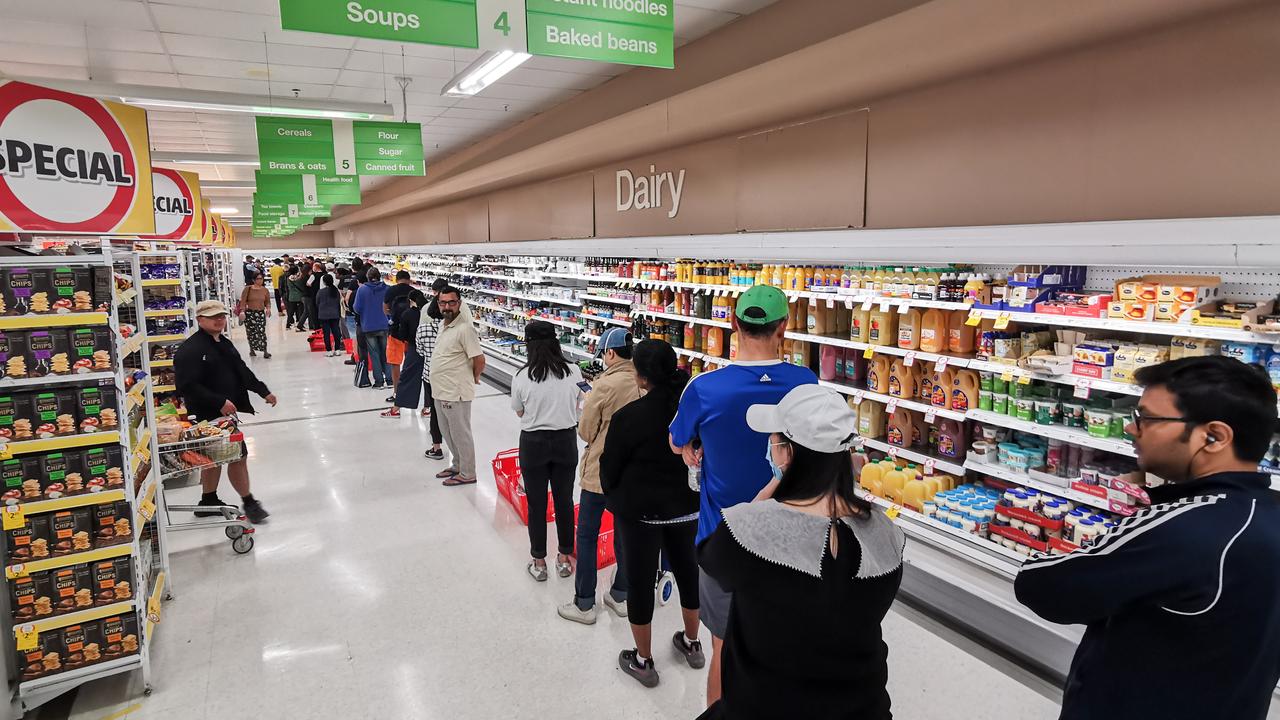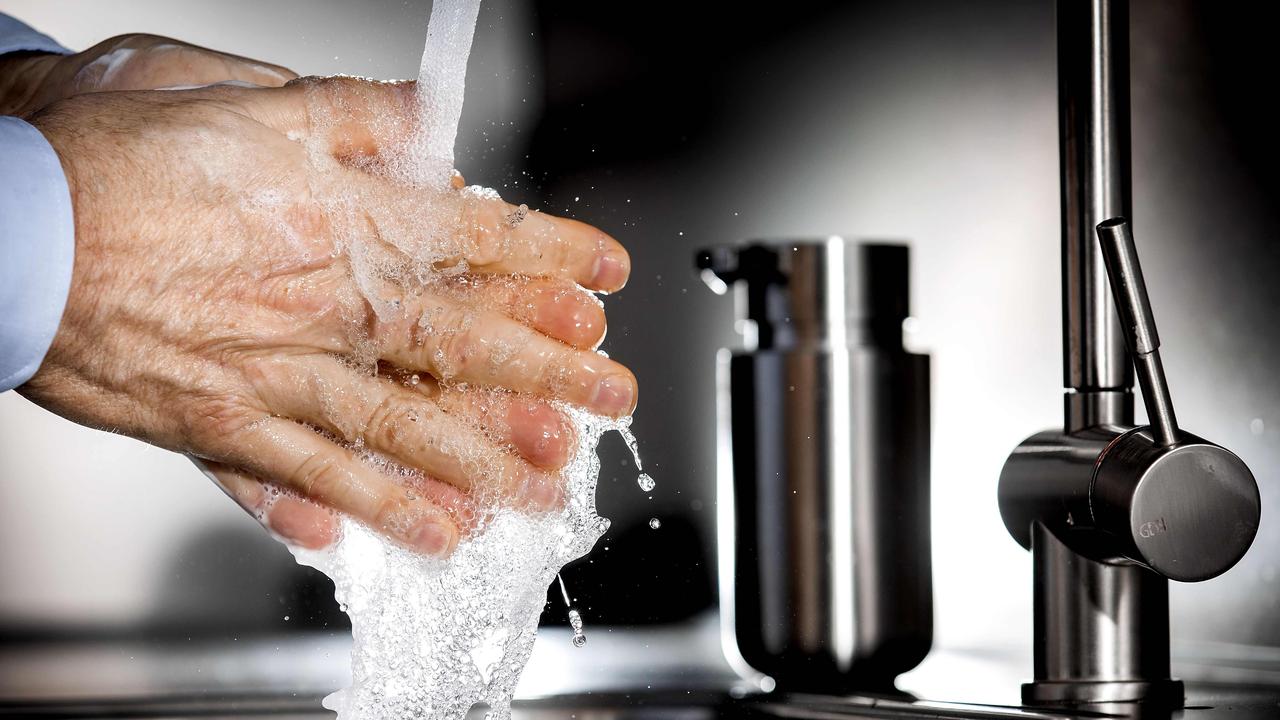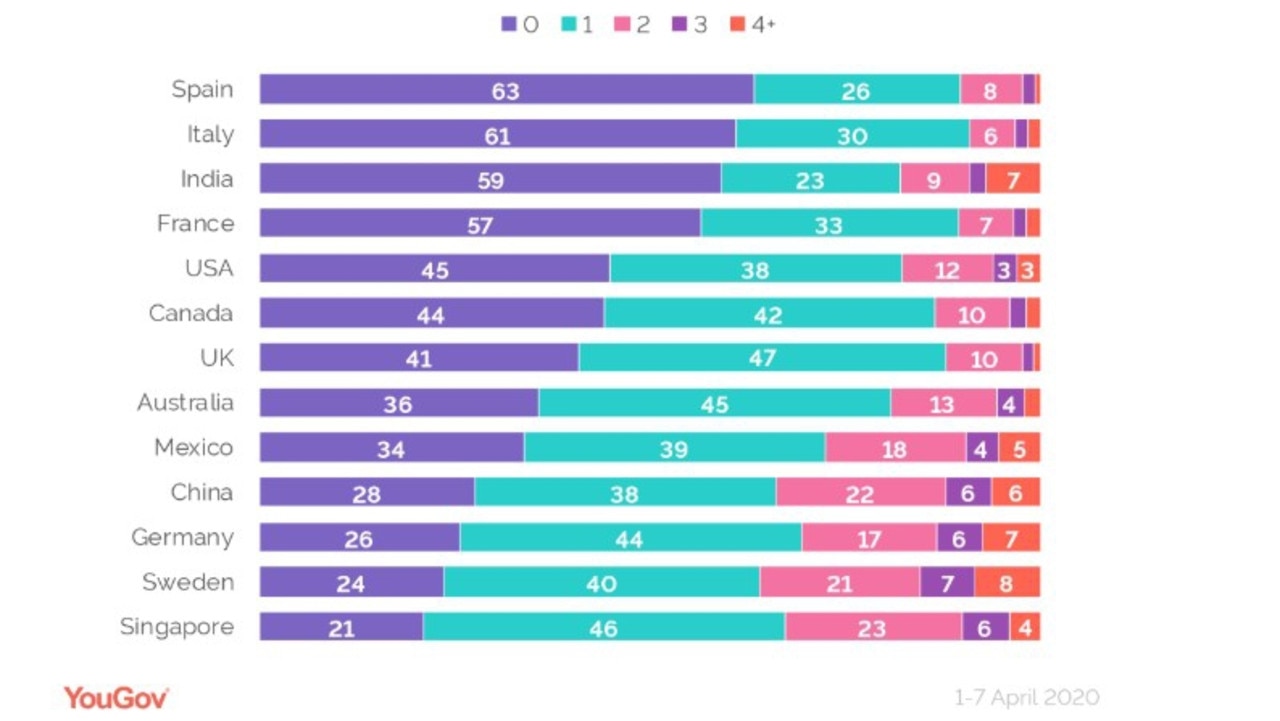Coronavirus: Australians visit supermarkets frequently despite being urged to remain home
We’ve been urged to stay home and only go out for the essentials and exercising but new research has suggested many Australians aren’t getting that message.

Far from staying at home, one in 10 Australians are going grocery shopping every single day.
Eye-opening new research has also revealed around 40 per cent of people are unclear as to what they are allowed to do or not do under their state’s coronavirus regulations.
Polling by YouGov for News Corp newspapers found that almost half of all residents of New South Wales, which has seen Australia’s largest number of COVID-19 cases, shop more than once a week. Yet the NSW Government’s number one request is that people remain in their homes as much as they can.
RELATED: The only valid excuses for going outside
RELATED: Coronavirus has people buying home improvement items over alcohol
The researchers polled more than 2000 people across four states and found Queenslanders were the most willing to shop infrequently, with 45 per cent only going out once a week and 38 per cent going out for groceries more frequently.
In Victoria, 44 per cent of people went grocery shopping more than once in any given week. South Australians tied with people in NSW with 48 per cent heading to the shops several times a week. However, South Australia has less restrictive guidelines than the eastern states.
The findings back up earlier research that showed only 64 per cent of Australians were cutting back on shopping trips since the outbreak began, compared to almost 90 per cent of Italians. And data from Commonwealth Bank has show Australians are still spending far more in supermarkets than at this time last year.

Infectious disease experts have urged people to minimise their trips to potentially busy supermarkets to once a week or less as social distancing is often trickier in tight spaces. However, there has been no evidence of transmission in supermarkets.
More than 6400 cases of COVID-19 have now been confirmed in Australia, with almost 3000 of those in NSW. The death toll stands at 63. However, new cases are on a downward trend in Australia. In NSW, 11 people tested positive yesterday.
Nationally, around 40 per cent of people are still confused about the restrictions that specifically affect them, the research found. The most puzzled were South Australians with 44 per cent unsure what they could or could not do.
That might be not be surprising given South Australia’s looser restrictions which, for instance, still mean people can gather in groups of up to 10 people – rather than just two – so long as they socially distance.
Even in the eastern states, there are differences. Victoria has stricter rules than NSW, for instance. In NSW there are at least 16 “reasonable excuses” to leave the house, including to go fishing.
In NSW, 39 per cent of people didn’t understand the restrictions that applied, compared to 38 per cent in Victoria and 37 per cent in Queensland.
Generally, Australians have been asked to stay indoors but can leave home for food, medicine and other essentials; to get medical care; to exercise or for work and education.

LIKE HAND WASHING, HATE STAYING IN
Previous research of global attitudes to coronavirus restrictions, also published by YouGov, has found Australians are good at hand washing compared to citizens of other countries, but, again, not so good at staying home.
The analysis, produced for Imperial College London, was collated from talking to 14,000 people in 13 countries.
Published last week, it found around 60 per cent of Italians, Spaniards and Indians had stayed indoors during the previous 24-hour period. In contrast, only 36 per cent of Australians had done the same – less than people in the UK or US.
Generally, people in those countries most affected by COVID-19 were the most eager to stay indoors. Italy, Spain, the UK and US have had far more cases than Australia.
Only 28 per cent of Chinese people stayed indoors during the 24 hours before they were surveyed earlier this month, perhaps reflecting the country’s relaxation in its lockdown measures.

Swedes were also likely to head out. The Scandinavian nation, controversially, has far fewer restrictions in place than many other European countries.
Around 45 per cent of Australians were only going out once a day, however. A mere 4 per cent were leaving home three times or more.
Italians and Swedes are the most frequent hand washers, running their hands under the taps 14 times a day on average. That suggested while citizens of Sweden may be going out more than most, they also seem to be trying to minimise their risk of infection.
Australians wash their hands on average 13 times a day, more than the Brits, Americans or even the Spanish despite that nation’s tragic death toll. Respondents in China said they washed their hands six times a day.
The research also showed that 90 per cent of Australians were avoiding crowded places, similar to numbers in Europe and the US. But while 87 per cent of Italians and 72 per cent of people in the UK were avoiding the shops only 64 per cent of Australians were.
Only Germans, Swedes and Singaporeans were less likely to cut down on their retail therapy.




